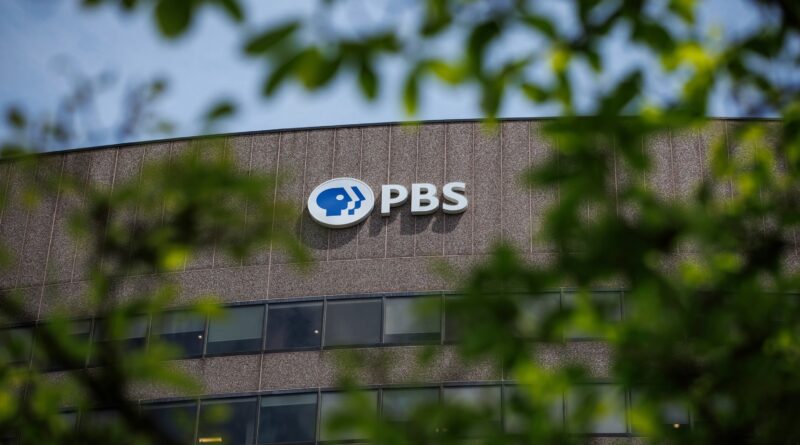Tennessee’s Public Media Stand Strong Despite Federal Budget Cuts
In the aftermath of significant budgetary cuts passed by Congress, which have left renowned public broadcasting platforms such as Public Broadcasting Service and National Public Radio without any federal financial support, Tennessee’s public media leaders reassure their audiences they are here to stay. Despite the looming financial uncertainties, these leaders have pledged to push back against the tide. At a recent gathering held at Nashville’s PBS station on August 7th, community members became audience members during a live recording of the local talk show, ‘Slice of Community.’
The show typically provides a platform for political figures, social activists, and community organizers to engage in discussions around driving the community forward. On this occasion, however, the purview was shifted toward the predicament at hand – the recent budget cuts which had shaken the very core of local stations. Among those seated in front were Avery Hutchins of Cookeville’s WCTE, Becky Magura of Nashville’s WNPT, and Mack Linebaugh of WPLN in Nashville.
These public radio and TV leaders deliberated on the implications of the funding cut, providing insights into their strategies to maintain operations despite the financial adversity. Hutchins emphasized that their power lies in their numbers and their standing as a trustworthy source of information for many. The path forward, according to him, lies in remembering the importance of their work and harnessing collective strength.
Given effect by the ‘One Big Beautiful Bill Act’ ratified by Congress on the 18th of July, these reductions have rendered the nonprofit Corporation for Public Broadcasting devoid of any governmental funding for the first time since 1967. Although the federal support did not form more than .01% of the overall federal budget, translating to roughly $1.06 per person every year, this seemingly minor cut has had significant ramifications at the local level.
Local organizations like Tennessee’s PBS and NPR stations which have historically relied on government grants to deliver services that span from news coverage to educational programmes and emergency broadcasts, are now left without this financial lifeline. Tennessee’s public radio and television stations had previously received a sum of $7,365,199 via CPB funding for the current fiscal year. This source of funding has now been retracted, forcing stations to escalate their fundraising efforts.
Avery Hutchins gave voice to the concerns sweeping through these stations, noting that the cut equated to 40% of their operating budget. In marginal communities, the impact of these cuts will be especially sharp. As he noted, for some, this constitutes the only television station within a 75-mile radius. Trying to navigate these funding gaps will undoubtedly be a challenging endeavor.
Evidence of the financial impact can be found in the varied reliance on the CPB among different stations: Nashville’s station draws 20% of its funding from the CPB, the Cookeville station 40%, Lexington 45%, Memphis 21%, with Knoxville and Chattanooga sitting somewhere between 30% and 45%. Collectively, these stations provide essential services to more than 6 million individuals, their coverage extending beyond the state boundaries and into several adjoining states as well as reaching into deeply rural areas.
Hutchins highlighted the implications of the funding shortfall for remote areas of Tennessee, which lack options for obtaining information. In many of these areas, connectivity is a luxury, with a dearth of cell service and fiber connections. In regions such as this, WCTE may represent the only way for residents to stay current with events. These services have a real and tangible impact—whether it’s being informed about the weather, viewing an Amber Alert, or receiving critical tornado updates.
Expressing her concern about the funding cuts, Magura called them a ‘significant blow.’ She emphasized the irreplaceability of what they offer. Public media, according to Magura, affords every individual access to free, over-the-air services that reflect their diverse interests and identities. For those who are proponents of public institutions like schools and healthcare facilities, they should see the value and necessity of public media.
Magura expressed gratitude for the wave of support the station has received ever since the cuts became public. Linebaugh echoed her sentiment and recognized the invaluable support coming from the Nashville audience. Just a week prior, the local radio station hosted a three-day fundraising event which successfully covered the $400,000 loss caused by the cuts, marking the occasion as the fastest and largest fundraiser in the history of the station.
Following a dynamic question and answer segment towards the end of the program, Magura acknowledged those who had offered their support and help throughout these challenging times. She captured the sentiment of the gathering well when she claimed, ‘we’re determined to not go away.’ The survival and sustainability of these stations, however, cannot be achieved without the support of the audiences. She emphasized the importance of their voices and support and how it’s critical for these stations during these challenging times.



